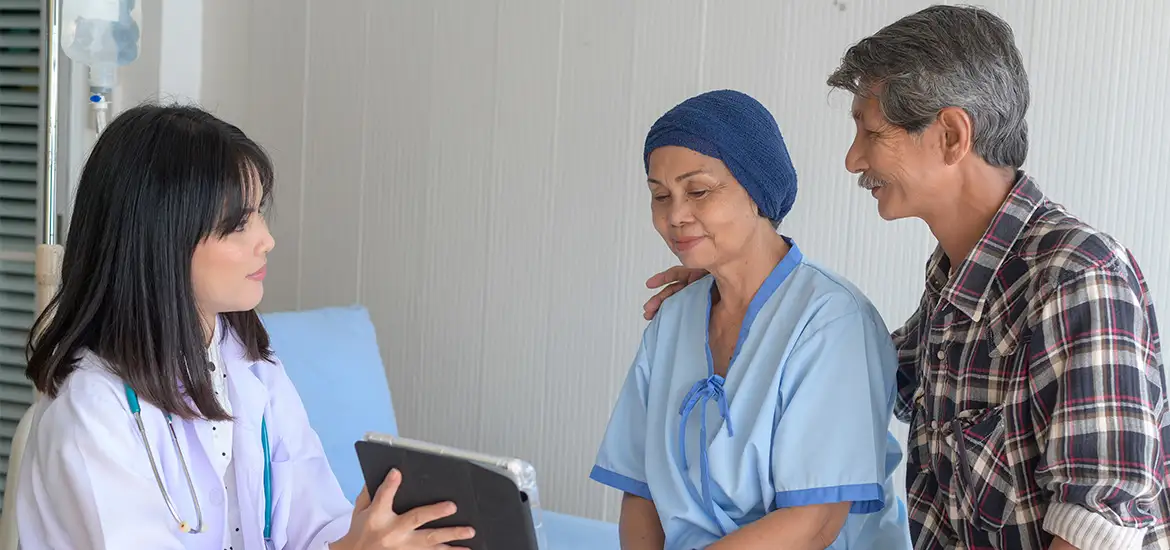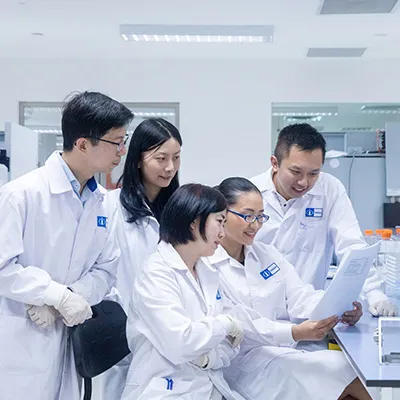An emerging method of cancer treatment is the use of targeted therapies such as Antibody Drug Conjugate (ADCs) to block cancer cell growth by intervening with specific cancer-associated molecules. It is one of the important trends in the development of precision medicine.
Singapore’s “Research, Innovation and Enterprise 2025 Plan” (RIE2025) has a focus on precision medicine. In 2017, the government launched a 10-year National Precision Medicine Programme to establish a framework and infrastructure for implementing precision medicine across the country.
Global precision medicine market valued at US$74 billion with rapid growth projected
Unlike one-size-fits-all treatments of the past, precision medicine uses diagnostic results alongside patients' medical histories and lifestyles to craft personalised treatment and prevention plans. Actress Angelina Jolie and former United States (US) President Jimmy Carter have both benefited from precision medicine therapies.
At age 37, Jolie discovered through genetic testing that she was a carrier of the BRCA1 breast cancer mutation gene and decided to have a preventive double mastectomy. Carter, at 91, was diagnosed with melanoma that had metastasised to his brain. Combining immunotherapy and radiation therapy, he became the longest-living president in US history, living to the age of 100.
Immunotherapy, which harnesses the body’s immune system to combat cancer, is another significant trend in precision medicine.
The nascent field of precision medicine holds strong growth potential within the biomedical sciences sector. Globally, its market size was valued at US$74 billion (S$100.38 billion) in 2022 and is projected to grow at an average annual rate of 11.5 per cent up to 2030. Advancements in genomics, significant reductions in genetic testing costs, increasing demand for personalised treatments, and continuous innovation in diagnostics are all driving forces for further market growth.
In addition to cancer, precision medicine is applicable to rare genetic disorders and common chronic diseases like diabetes. Professor Toh Han Chong, Deputy Chief Executive Officer (Strategic Partnerships) and Senior Consultant in Medical Oncology at Singapore’s National Cancer Centre, highlighted that any drug targeting specific proteins can be considered part of precision medicine.
Cancer remains a global challenge, with 20 million new cases and 9.7 million deaths in 2022. In Singapore, 25,250 new cases and 13,277 deaths were recorded in 2022, with colorectal, breast, and lung cancers being the most common. By 2050, global cancer cases are projected to exceed 35 million, driven by aging populations, lifestyle factors, and environmental risks.
Singapore’s role as a global precision medicine hub
The global shift towards precision medicine has brought opportunities for innovation, manufacturing, and commercialisation to Singapore. In recent years, Singapore has attracted many international pharmaceutical companies to invest and set up operations.
Goh Wan Yee, Senior Vice President of Healthcare at EDB, said: “Leading medical technology, biotechnology, and pharmaceutical companies are responding to this growth opportunity by developing and commercialising innovative products and solutions. These include life sciences tools and reagents that enable early detection and better diagnosis of disease, as well as precision therapeutics that are targeted and have improved treatment outcomes.”
Examples of collaborations include:
- US-based Thermo Fisher Scientific’s partnership with Singapore-based startup Mirxes and the National University Hospital to develop and clinically validate advanced next-generation sequencing technologies for affordable early cancer detection in Southeast Asia.
- US biotechnology company Illumina’s production facility in Singapore supplying over 90 per cent of the company’s global microarrays and producing 60 per cent of its sequencing consumables, including reagents and kits.
"Illumina's products are exported to medical research hubs globally to diagnose and study diseases." Goh said.







